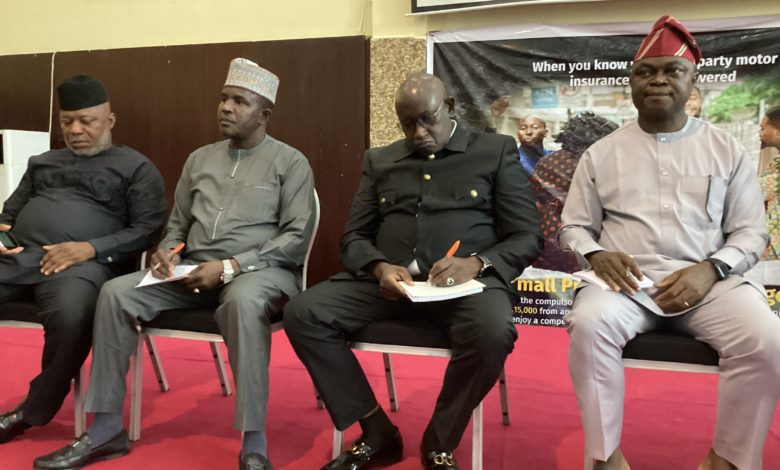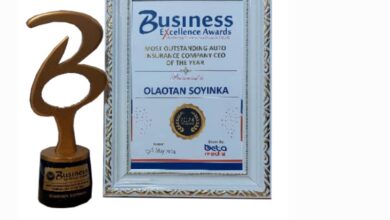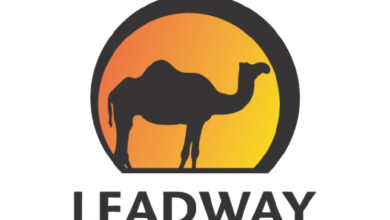Insurers Urged To Adopt Digital Solutions For Increased Insurance Penetration

L-R: Mr Adeyemi Abubakar, Head of North Central Zone; Mr Ibrahim Ngaski, Assistant Director, Information & Technology; Mr Ahmad Adamu, Director, Research, Statistics and Publication and Mr Leonard Akah, Director of Inspections all of the National Insurance Commission (NAICOM) during the 2023 Seminar for insurance journalists in Uyo, Akwa Ibom State.
The insurance operators in Nigeria have been urged to take advantage of the opportunities provided by the Information and Communications Technology to drive the growth of the industry.
The National Insurance Commission (NAICOM) made the call at the weekend during the 2023 retreat organised for insurance journalists in Uyo, Akwa Ibom State with the theme “Improving Stakeholders Perception 2023 and Beyond,”
In his presentation titled “Leveraging Technology To Promote Insurance Penetration,” Assistant Director Information Technology at NAICOM, Mr Ibrahim Ngaski emphasized the imperative of adoption of digital technology to enhance customers’ experience and insurance penetration.
While expressing displeasure on the industry’s low penetration and contribution to the nation’s gross domestic products (GDP) and the need to raise the bar of its performance, Ngaski said “The Insurance Industry is currently lagging behind and needs to reassess its business model, re-evaluate their strategy and make the digital agenda a high priority.
“It’s time for Insurers to evolve and respond to these changes in order to meet up with customers expectations; and that requires a different set of skills, culture and operating model.”
He said the adoption of Cloud computing, Mobile technology, and Internet of things (IoT) will help in providing digital solutions for increased insurance penetration.
“Cloud computing – Cloud computing enables the delivery of various services over the internet, Data Management and its flexibility.
“Mobile technology – method use in communicating and marketing varieties of goods and services across different customers timely, thereby bringing services nearer to them which increases customer experiences.
“Internet of things (IoT) – This is referred to as the internetworking of physical devices, vehicles, buildings and other items (also referred to as “connected devices” and “smart devices”), embedded with electronics, software, sensors, actuators, and network connectivity that enable these objects to collect and exchange data. It is a network of smart devices connected to the internet.
“Insurers are increasingly leveraging the Internet of Things for various purposes, including identification of customers’ needs and risks. This is achieved by wearables to monitor our health and smart devices in cars and consumer products in houses. They are used to collect, share, interact with and analyze data,” Mr. Ngaski explained.
He said “A multitude of technological advancements and shifts are reshaping the way we access products and services and or how they are delivered to customers,” adding that “In the past few years, we must have seen the emergence of core technology trends that are affecting nearly every industry.”
Mr Ngaski however charged the operators to leverage technology in bringing insurance products and services nearer to the people in order to enhance customer experiences and the growth of the industry.





